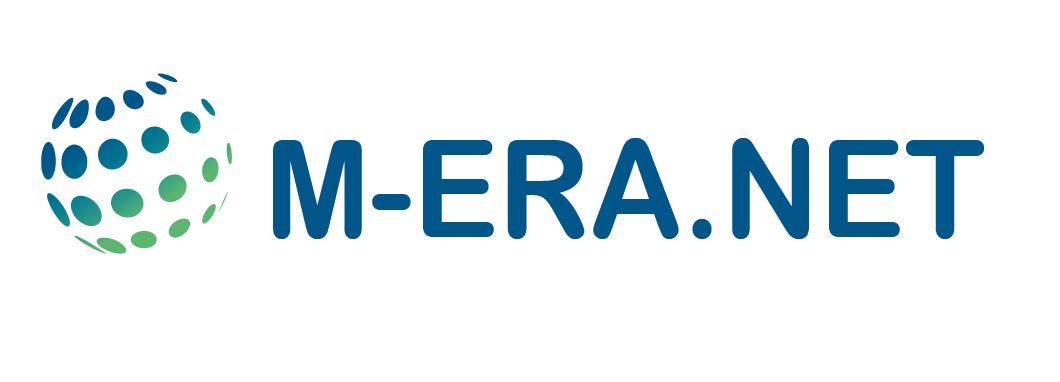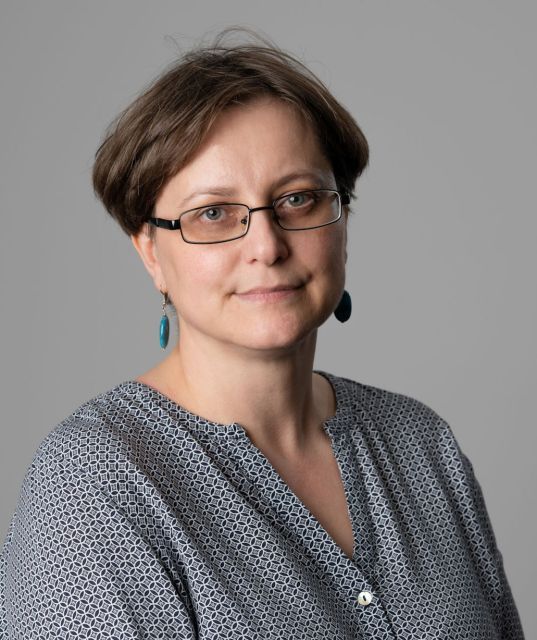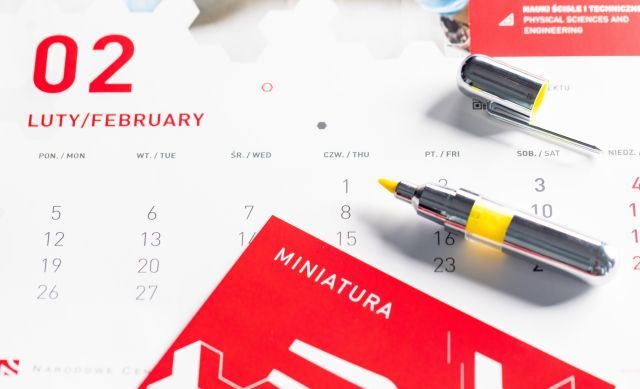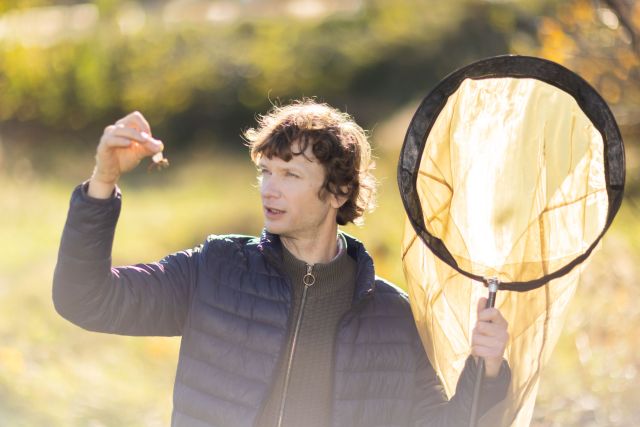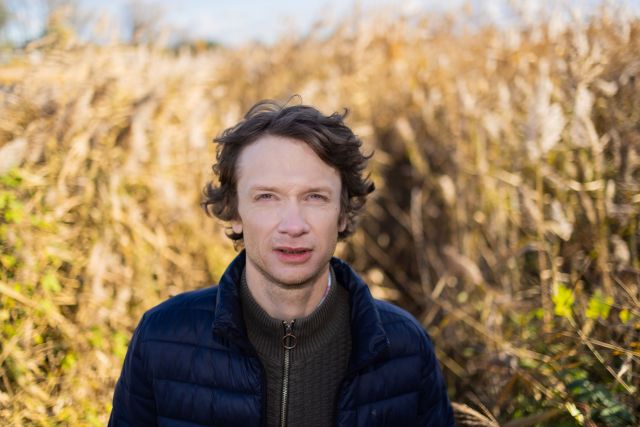Love Data Week 2024: Polish research data management infrastructures and services
Join us for a webinar organised by the National Science Centre within the framework of Love Data Week 2024. Held on 14 February under the slogan of “My Kind of Data”, the session will be focused on Polish research data management infrastructures and services.
During the webinar, representatives from various Polish infrastructures will present their portfolios and discuss research data management opportunities offered by Polish institutions. You will find out about the target groups of specific infrastructures and services and learn how you can help carry out various research projects. You are also strongly encouraged to ask questions during our Q&A session.
Below, more information about the event:
Speakers:
Aneta Pazik-Aybar, Narodowe Centrum Nauki, EOSC;
Maciej Piasecki, Wrocław University of Technology (WUT), CLARIN-PL
Dr hab. inż. Maciej Piasecki, Prof. WUT, from the Department of Artificial Intelligence of the Wrocław University of Technology, is the author of multiple scientific papers in natural language engineering, computational linguistics, lexicography, digital humanities and artificial intelligence. He is one of the creators of CLARIN-PL (http://clarin-pl.eu), the Polish component of the European language technology research infrastructure, CLARIN ERIC (http://clarin.eu). Since 2012, he has served as the national coordinator of CLARIN and the CLARIN-PL research consortium. In 2018-2022, he served two terms as the President of the Board of the National Coordinators’ Forum of CLARIN ERIC. Since 2005, he has headed a team working to build and develop Słowosieć (plWordNet, http://plwordnet.pwr.edu.pl), a large relational semantic dictionary of Polish, with a complete mapping onto Princeton WordNet (English). He is a member of the board of the Global WordNet Association. He has coordinated and headed many large research, research and development, and infrastructure projects, including CLARIN-PL-Biz (http://clarin.biz), one of the largest Polish projects in AI development. He is a co-author of many language tools and resources, especially for Polish. He sits on the Program Boards of many international conferences in natural language engineering, computational linguistics and artificial intelligence.
Roksana Wilk, Cyfronet AGH Academic Computer Centre, PLGrid;
Roksana Wilk is the leader of the Data Processing Lab, specialised in dedicated IT solutions for the research data management process at the Cyfronet AGH centre in Kraków. She first started out at Cyfronet as part of a team working to define the model and operation of its research-dedicated computational infrastructure, then went on to define and develop tools for the users of PLGrid, the Polish national e-infrastructure. While working on computational infrastructures, she got involved in EOSC-related projects, which marked the beginning of an adventure with open science that continues to this day. Apart from projects and activities aimed at developing open science governance and policy, she also works with aspects of the technical implementation of research data management platforms. She is active in many organisations involved in open science and research infrastructures. In private, she is a biomedical engineer, a fan of neurobiology and a dance lover.
Magdalena Szuflita-Żurawska, Gdańsk University of Technology, Data Bridge;
Magdalena Szuflita-Żurawska is the head of the Science and Technology Information Section at the Gdańsk University of Technology and a leader of the Open Science Competence Centre of the Library of the Gdańsk University of Technology. She is a member of international open science associations and expert groups (e.g. EOSC, RDA, OpenAIRE) and a co-chair at RDA IG Education and Training on Handling of Research Data IG. She is also an app reviewer for Core Trust Seal repositories, as well as the Open Science Representative of the Rector of the Gdańsk University of Technology.
She graduated from the University of Warsaw and Boras University, Sweden, with a degree in Digital Library Management, and went on to gain professional experience at the Health Science Library, University College Dublin, Ireland, where she worked for several years. She has participated as a guest and speaker in many national and international conferences, as well as science and infrastructure projects (e.g. Positive management of technical universities: a new model of work motivation, funded under NCN’s OPUS; DATA BRIDGE Multidisciplinary Open Knowledge Transfer System, stage 2: Open Research Data).
She has coordinated the following tasks: RDA/EOSC Data practices in an interdisciplinary perspective – building good standards and universal solutions and Working for the Promotion and Awareness Raising of Open Research Data in the framework of the Excellence Initiative – Research University (IDUB) program (1.4.b) at the Gdańsk University of Technology.
Wojciech Fenrich has an MA in sociology (University of Warsaw, 2006) and philosophy (University of Warsaw, 2009), and a PhD degree from the Department of Sociology of the University of Warsaw (2011). He has worked at the Interdisciplinary Centre for Mathematical and Computational Modelling since 2011. He was a product owner and analyst in a project “Dziedzinowe Repozytoria Otwartych Danych Badawczych” [“Domain Repositories Open Research Data”] (2018-2021). He is the custodian of the RepOD open data repository, takes part in its software development, and delivers training courses in research data management. He is a social sciences researcher.
He has translated a number of popular science and computer science books.
Magdalena Wnuk, Digital Humanities Centre, Institute of Literary Research, PAS, OPERAS PL;
Dr Magdalena Wnuk is the head of the Open Humanities Section at the Digital Humanities Centre, Institute of Literary Research, PAS. At the Digital Humanities Centre, she coordinates the development of OPERAS-PL and works in other projects related to the European OPERAS infrastructure (OPERAS-P, TRIPLE, PALOMERA, OPERAS-PLUS). She conducts interdisciplinary research, combining anthropological, sociological and historical perspectives. She is the author of a book entitled “Kierunek Zachód, przystanek emigracja” [“Direction: West, Station: Emigration”], published in the “Monografie FNP” series. Previously, she spent seven years (2013-2019) working as an analyst and project coordinator at Stowarzyszenie 61, where she developed websites: MamPrawoWiedziec.pl and Jawny Lobbing.
Raimundas Tuminauskas, Poznań Supercomputing and Networking Centre.
Raimundas Tuminauskas joined the Poznań Supercomputing and Networking Centre in 2019. With an extensive experience in European research and science networks, he is in charge of network and services infrastructure, especially as part of the PIONIER network. He is also responsible of international cooperation with GÉANT and EOSC. He leads an EOSC working group, heads the GÉANT Future project and participates in EOSC Future, Skills4EOSC and OSTrails projects. Since 2021, Raimundas has coordinated EOSC open science proceedings at the Poznań Supercomputing and Networking Centre, focusing on the strategic development of PIONIER network services available to research institutions.
Agenda:
- 12:00-12:05 Introduction
- 12:05-12:20 EOSC: Research data management in Europe
- 12:20-12:35 CLARIN-PL Language Technology Centre – open research infrastructure for European researchers
- 12:35-12:50 PLGrid Computational infrastructure for Polish science
- 12:50-13:05 DATA BRIDGE as a trustworthy research data repository
- 13:05-13:20 RepOD Repository of Open Data
- 13:20-13:35 OPERAS infrastructure for open science communication
- 13:35-13:50 Digital Infrastructures
- 13:50-14:30 Q&A (only for those participating via Clickmeeting)
Booking not required. Join the webinar HERE
The event will also be streamed live on the YouTube channel of the NCN:
Love Data Week was first launched in 2016 in the US and soon grew into an international event during which a broad community of institutions, organisations, scientists, students and other data lovers come together to raise awareness of research data and data management practices. This year’s slogan, “My Kind of Data”, emphasises the individual nature of data and their importance for science and society.

